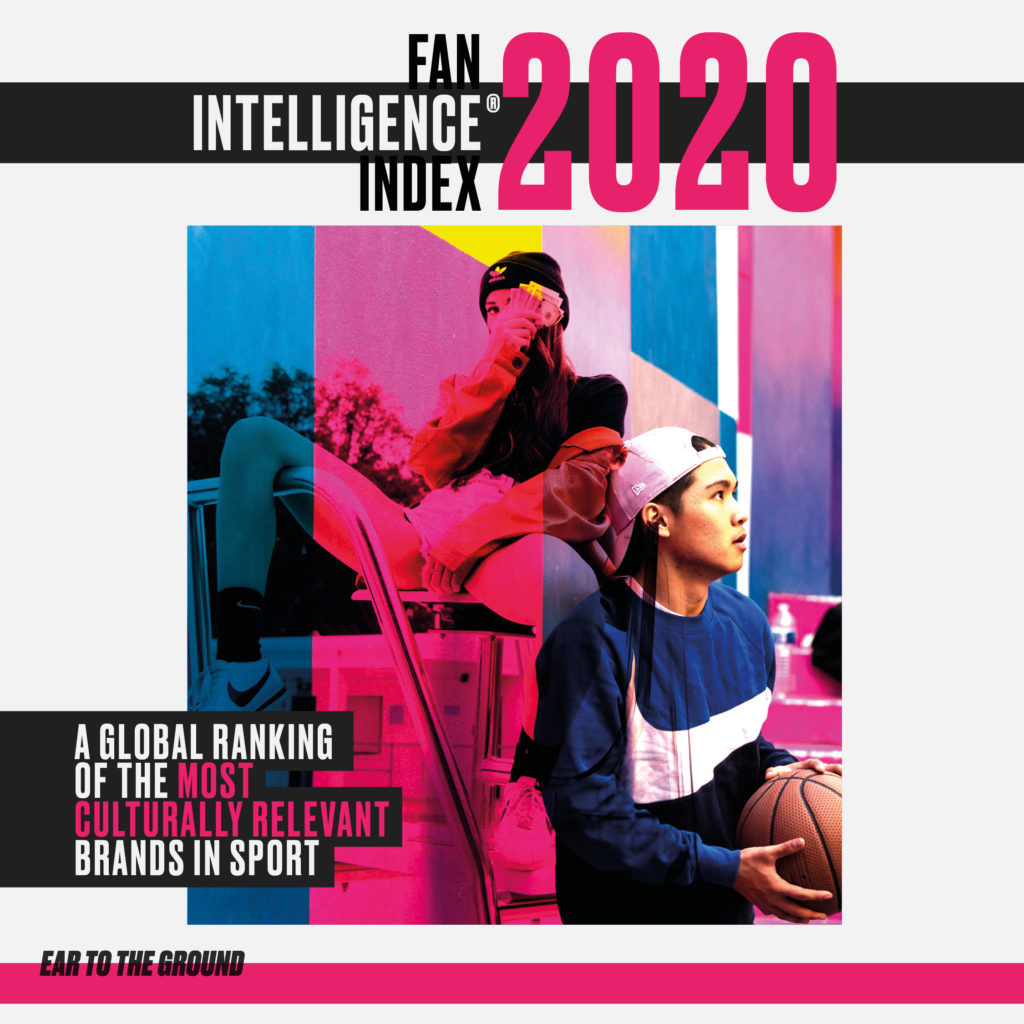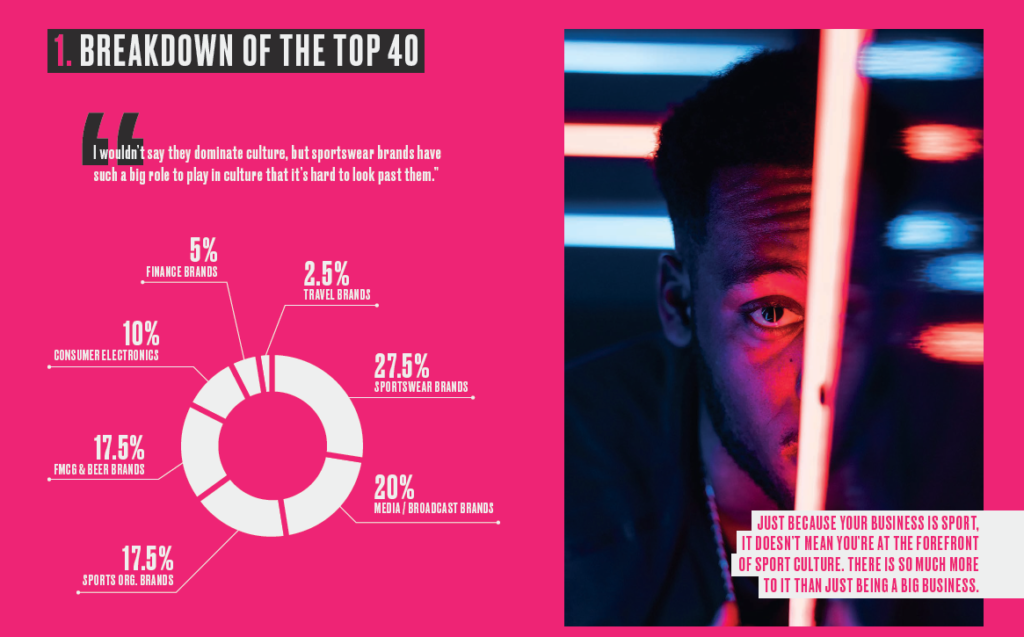ESA member and creative agency Ear to the Ground has launched the inaugural Fan Intelligence® Index 2020: a global ranking of the most ‘culturally relevant’ brands in sport – according to the most influential and culturally connected fans.
Against the backdrop of a global pandemic, 2020 has been a year of unprecedented change. And sport certainly wasn’t spared.
Fans may have been absent from arenas, but issues affecting all took centre stage. Professional athletes realised their ability to influence change as movements from Black Lives Matter to Extinction Rebellion competed for our attention. Premier League footballers went head-to-head with government ministers on policy. The world watched the attempted impeachment of an American president. And one of the world’s biggest sporting icons passed away in tragic circumstances.

In short, we entered a new era. A new era where merely being aware of wider culture in sport is not enough. The smart brands are those who respond to inspire change off the pitch, court and field hoping to connect and resonate with young, engaged audiences, globally.
Created in collaboration with the Fan Intelligence® Network – Ear to the Ground’s global network of the most influential and culturally connected fans – the Fan Intelligence® Index 2020 not only sets out a global ranking but provides answers as to what it takes for a brand to be ‘culturally relevant’ in 2020.
Key Findings:
Despite only 40% of fans involved in the research liking basketball, the sport dominated the ranking in terms of cultural relevance. The Last Dance, Kobe Bryant’s death and Black Lives Matter made events in the NBA impossible to ignore.
In football, the Premier League ranked in the top five for their ability to drive positive change, globally. Whilst Barcelona FC secured a top position for being a symbol of identity, alongside PSG for disrupting the norm, and Liverpool for their combination of celebrating sports heritage while innovating off the field – each behaving less like rights holders and more like some of the world’s biggest consumer brands.
As far as consuming content, TikTok gave fans new ways to connect with their idols.
Surprisingly, no traditional sports broadcaster made the list, but Netflix, Amazon and YouTube all made moves in this space this year, adapting to the consumption habits of younger fans by feeding appetites for longer form documentaries.
Gen Z audiences are well-known to be proactive in their desire to make a difference to their world. And they now expect brands with a platform in sport to react to the changing terrain as they do. It’s no longer just a sponsorship, a logo on a shirt. It has to have meaning.
Yet despite being the most important characteristic within the report, ‘Driving Positive Change’ had the worst average score and was generally the lowest scoring for most brands. This demonstrates a huge gap between what consumers and fans view as important, and what brands in sport are actually delivering.

Director of Fan Intelligence® at Ear to the Ground, Owen Laverty comments on the driving force behind the research:
“With the Fan Intelligence® Network closely following and directing where culture is going next, we created a methodology that moved away from the brands who were only capturing market share and focussed in on those who were using sport as a platform to influence culture and effect change.
“In this respect, we are talking about ‘culture’ in its widest sense – a living breathing entity which pervades every aspect of behaviour. By tracking the shifting moods and opinions of these culturally connected fans, we learn about their attitudes and their future expectations. In an era of relentless change, with a global pandemic changing sport as we know it, cultural relevance might just become the most important measure for brands moving forward.”
Additional takeaways:
- Adidas beats Nike to the number one spot as they lead culture in 2020
- Although synonymous with athletes including LeBron James, Michael Phelps and Anthony Joshua, global fans don’t feel Beats by Dre are as relevant as they used to be, ranking 28th behind brands such as TikTok, PlayStation and New Balance
- Airbnb is the only travel brand to make the list
- Given their 25 year history in sport, Mastercard slots in at Number 40, following Visa at Number 33
Set to be released each year, the qualitative study is the first to identify the fundamental characteristics of a culturally relevant brand in sport. Substantiating the framework with a global sample of fans across Europe, Asia & North America to finalise the top 40, a culturally relevant brand in 2020 can be defined as follows:
Driving positive change: Global fans agreed that culturally relevant brands are those who respond to issues faced by fans and their communities, promoting real social change and not just hijacking conversations.
Disrupting the norm: Valuing those who redefined cultural practices through innovation and disruption to inspire new behaviours and trends.
Celebrating sports heritage: Speaking to fans and not at them, inviting reciprocation, and appreciating and facilitating fan rituals, customs and culture.
Standing for something: Brands who are upfront and honest about what they stand for – reflecting their values through every action they take in sport.
Instigating cultural collaboration: Collaborating with co-existing cultural disciplines such as fashion, gaming and music to bring together fan bases and introduce unexpected crossovers in sport.
Forming authentic partnerships: Championing cultural ambassadors who embody their values and giving them the freedom to speak on their behalf.
–ENDS–
For further interview with Owen Laverty and to access the full Top 40 list please contact:
Kat Renshaw
07795 954793

